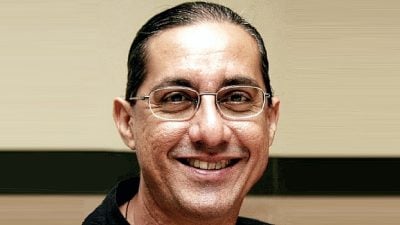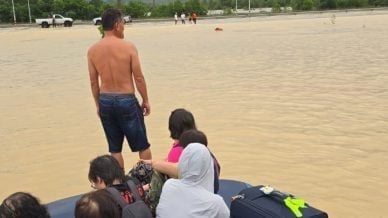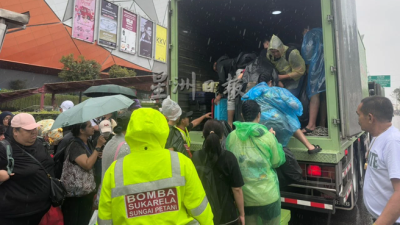
Developmental disability or delay in children is common.
Most good studies show that between 10-15 per cent of all children have a disability.
The American Academy of Paediatrics (AAP) and Centres for Disease Control & Prevention (CDC), US, quote that 1 in 6 children has a developmental disability; with rates rising over the past two decades.
Comprehensive local data on the rates of various childhood disabilities like intellectual disabilities, attention deficit hyperactivity disorder (ADHD), autism spectrum disorder, specific learning disabilities (e.g. dyslexia), physical disabilities (e.g. cerebral palsy and spinal muscular atrophy), deafness and blindness, is lacking.
However, data from the Ministry of Education (MoE) shows that the problem is large. For the year 2024 MoE reported that 122,000 Year One students (~ 24 per cent of all children for that age) lacked the essential skills of reading, writing and counting.
After remedial support via an intervention programme for literacy and numeracy, many gained the skills but more than 59,000 (11.8 per cent) were still not able to read or were numeracy illiterate.
These figures support international data that at least 10-15 per cent of all children have a developmental disability.
Identifying these children when they enter Standard One is too late.
Parents, educators, policy makers and the government are fully aware that when a child is not school-ready at Standard One, their academic future is impaired and they fall far behind their peers.
Hence, it is critical to identify these children early, while still in the pre-school years and offer them early intervention.
This can only be achieved by a universal screening programme.
Most Malaysian children receive surveillance and screening for developmental disabilities until the age of 18 months, linked to the Ministry of Health’s (MoH) primary vaccination programme.
From the age of 2 to 6 years, most children do not receive any routine surveillance or screening.
Developmental surveillance in the private sector is expensive and limited.
Hence, important developmental disabilities like autism spectrum disorder, intellectual disabilities, ADHD and specific learning disabilities are not identified and these children enter school unable to face the academic challenges.
An additional challenge is the limited opportunities for early intervention, such as EIP centres, rehabilitation, speech and language therapy, etc, if a developmental delay is identified.
What solutions are viable? What type of system or services do we need?
1. We require an easy to administer, validated screening tool, in multiple languages, appropriate for the Malaysian context and at low cost.
2. Ideally it needs to be administered in pre-school facilities (taska, tadika) by teachers who are trained.
It could be done at MoH health clinics but the staff there are overburdened with a wide scope of health services.
One issue will be the children that do not attend pre-school – they are the ones very likely to have a developmental delay.
3. The screening may need to be conducted more than once (age 3, 4, 5 years) as some problems only become apparent at a later age and with some education training.
4. It is insufficient to just have a screening programme, we require all parents and pre-school teachers to have access to an intervention programme with no delay.
We need to work out the best sustainable mechanisms for screening to be conducted for all children in Malaysia.
Currently there are two start-up companies in Malaysia attempting to develop screening programmes to fill this gap.
Angsana Health has a “Autism Virtual Early Screening Tool” (AVEST) which focuses on a rapid diagnosis for autism using a parent questionnaire and video recording of the child reviewed by a trained professional.
Toy8 has a validated digital screening tool administered by trained pre-school teachers followed by an online intervention programme.
More than 10,000 children have been screened with the Toy8 tool and a pilot project to do universal screening with an intervention programme is currently being tested with the support of the Sarawak and Selangor state governments.
It is good to know that both start-up companies are attempting to offer accessibility to underserved populations (B40).
Whatever initiative we choose needs to be supported by the government so that all parents are able to access the service; such a service must not burden parents financially.
If we choose to conduct the screening at MoH health clinics we will need to significantly boost the human resources.
There will also be the issue of referring children with developmental delay to professionals for assessment and a huge need to develop early intervention services to prepare these children for school entry.
The benefits of early screening with intervention for children with developmental disabilities are huge.
Children with developmental disabilities will be identified early and offered support before school entry. This will enable a higher rate of inclusive, mainstream education and a reduction in the need for special education.
It is anticipated that such a programme will result in higher long-term employability and independence with a reduction in the cost to the community and government.
Ultimately this will be cost-benefit to the government with long-term savings.
It is critical that the government take note of this serious gap in our support of children and address it comprehensively in Rancangan Malaysia Ketiga Belas (RMK-13).
By prioritising developmental screening, the government can ensure that children receive the support they need to thrive and that all children reach their full potential.
Investing in the healthy development of children contributes to a more educated, skilled, and productive workforce in the future, benefiting all of society.
Malaysian Paediatric Association (MPA):
■ Dato’ Dr Amar-Singh HSS (Member)
■ Assoc Prof Dr Mohamad Ikram Ilias (President)
■ Dr Selva Kumar Sivapunniam (Immediate Past President)
■ Datuk Dr Zulkifli Ismail (Committee Member)

ADVERTISEMENT
ADVERTISEMENT







































